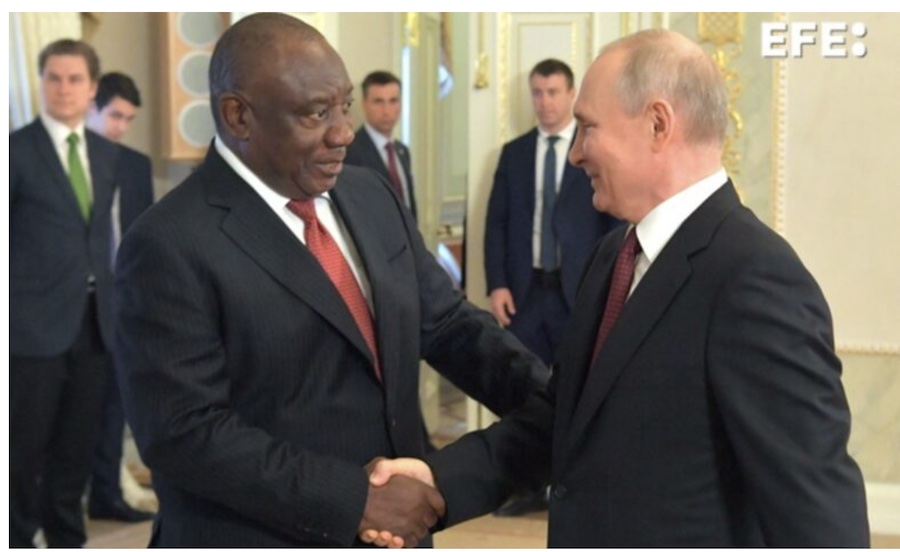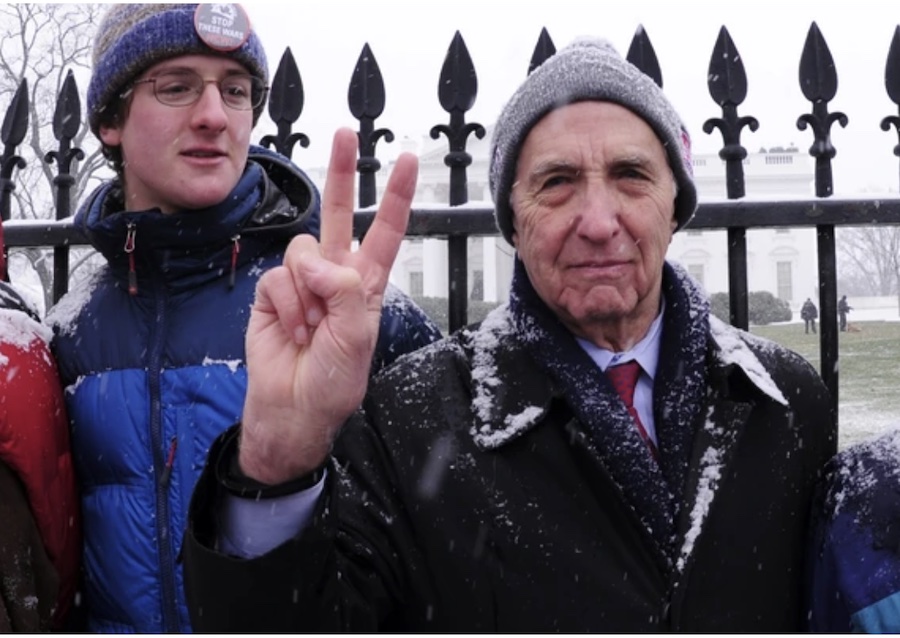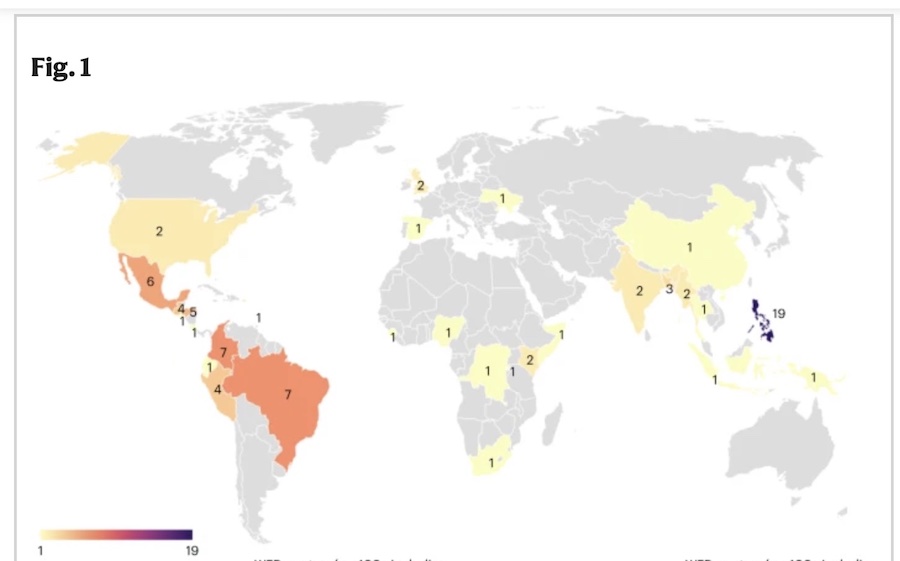. . SUSTAINABLE DEVELOPMENT . .
An article from the United Nations
The UN’s 193 Member States adopted a landmark legally binding marine biodiversity agreement on Monday (June 19) following nearly two decades of fierce negotiations over forging a common wave of conservation and sustainability in the high seas beyond national boundaries – covering two thirds of the planet’s oceans. Here are five key points on why it is important for the world..

© Nuno Vasco Rodrigues/UN World Oceans Day 2023 A team of scientific divers assess the marine biodiversity on the top of a seamount in Porto Santo, Madeira, Portugal.
1. Fresh protection beyond borders
While countries are responsible for the conservation and sustainable use of waterways under their national jurisdiction, the high seas now have added protection from such destructive trends as pollution and unsustainable fishing activities.
Adopted by the Intergovernmental Conference on Marine Biodiversity of Areas Beyond National Jurisdiction (BBNJ), the “high seas” treaty aims at taking stewardship of the ocean on behalf of present and future generations, in line with the Convention on the Law of the Sea.
The new agreement contains 75 articles that aim at protecting, caring for, and ensuring the responsible use of the marine environment, maintaining the integrity of ocean ecosystems, and conserving the inherent value of marine biological diversity.
“The ocean is the lifeblood of our planet, and today, you have pumped new life and hope to give the ocean a fighting chance,” the UN Secretary-General António Guterres told delegates on Monday.
2. Cleaner oceans
Toxic chemicals and millions of tons of plastic waste are flooding into coastal ecosystems, killing or injuring fish, sea turtles, seabirds, and marine mammals, and making their way into the food chain and ultimately being consumed by humans.
More than 17 million metric tons of plastic entered the world’s ocean in 2021, making up 85 per cent of marine litter, and projections are expected to double or triple each year by 2040, according to the latest Sustainable Development Goals (SDG) report.
According to UN estimates, by 2050, there could be more plastic in the sea than fish unless action is taken.
(article continued in right column)
If we can connect up the planet through Internet, can’t we agree to preserve the planet?
(Article continued from the left column)
The treaty aims at strengthening resilience and contains provisions based on the polluter-pays principle as well as mechanisms for disputes.
Under the treaty’s provisions, parties must assess potential environmental impacts of any planned activities beyond their jurisdictions.
3. Sustainably managing fish stocks
More than one third of global fish stocks are over-exploited, according to the UN.
The treaty underlines the importance of capacity building and the transfer of marine technology, including the development and strengthening of institutional capacity and national regulatory frameworks or mechanisms.
This includes increasing collaboration among regional seas organizations and regional fisheries management organizations.
4. Lowering temperatures
Global heating is pushing ocean temperatures to new heights, fueling more frequent and intense storms, rising sea levels, and the salinization of coastal lands and aquifers.
Addressing these urgent concerns, the treaty offers guidance, including through an integrated approach to ocean management that builds ecosystem resilience to tackle the adverse effects of climate change and ocean acidification, and maintains and restores ecosystem integrity, including carbon cycling services.
Treaty provisions also recognize the rights and traditional knowledge of indigenous peoples and local communities, the freedom of scientific research, and need for the fair and equitable sharing of benefits.
5. Vital for realizing 2030 Agenda
The new agreement “is critical to addressing the threats facing the ocean, and to the success of ocean-related goals and targets, including the 2030 Agenda, the UN chief said on Monday.
Some of the goals and targets include Sustainable Development Goal (SDG) 14, which aims at, among other things, preventing and significantly reducing marine pollution of all kinds by 2025, and ending overfishing through science-based management plans in order to restore fish stocks in the shortest time feasible.
The new agreement will enable the establishment of area-based management tools, including marine protected areas, to conserve and sustainably manage vital habitats and species in the high seas and the international seabed area.
The treaty also considers the special circumstances facing small-island and landlocked developing nations.
“We have a new tool,” UN General Assembly President Csaba Kőrösi told the Intergovernmental Conference delegates on Monday. “This landmark achievement bears witness to your collective commitment to the conservation and sustainable use of marine biological diversity in areas beyond national jurisdiction. Together, you laid the foundation for a better stewardship of our seas, ensuring their survival for generations to come.”
Learn more about how the UN is working to protect the world’s oceans here.








